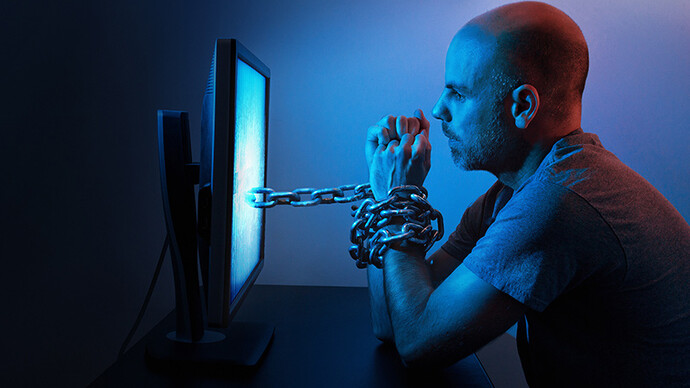In my previous article, I wrote about how social media has brought people together and enhanced businesses in the world. But, just like any other new developments, social media has also its own downsides. And, we need to look into them before they get into us.
The glaring negative effects of social media
It is true that social media has made life easier for humanity. But, it also makes many of us alone. The immediacy of social networking is so tempting that many people get hooked to the devices to the excess. And because of such preoccupation, they are at risk of getting themselves isolated from the real world.
False sense of connectivity. Have you witnessed a group of friends getting together in one place but are barely speaking to one another? Instead, everyone is busy attending to his own mobile device? Or, have you yourself experienced being together with your family but not together? Isn’t it quite absurd?
Actually, this is a common scenario that you can find everywhere you go. It’s what we call a plugged-in life. The little device in our pockets has taken a powerful control over us. It dramatically changed who we are and what we do. To the point that we feel inutile without our mobile phones.
Let’s face the sad truth. Social media is subtly making us into sociable robots. It changes the way we relate to ourselves and our capacity for self-reflection. We want to be with each other, but also elsewhere at the same time. We want to customize our lives. In the process, we lose the essence of conversation.
In the past decade, many of us have preferred sending text messages, emails, and posting on social media instead of engaging in actual conversations. Why? Because through these means of connection, they want to present themselves as they want to be. Through the online connection, they get to edit and delete what they do not want others to see of themselves.
Human relationships are messy and can sometimes be demanding. So, we clean it up with technology. By doing this, we face the risk of sacrificing conversation for mere connection. And this might lead us to stop caring for one another altogether. Building casual relationships through social media diminish our ability to foster meaningful relationships in the real world.
Addiction to the devices. This is the hard fact: company heads text or do email during corporate board meetings. Employees shop online during office hours or in the middle of presentations. Students go on Facebook amid class hours. Parents text, talk on their mobile devices or do email at mealtimes. And children complain about not having their parents’ full attention. But at the same time, too, these same children deny each other their full attention.
Practically, everyone can be addicted to social networking. In fact, many already are!
Addiction to social networking is a compulsive behavior to use social media to the excess. According to studies, many employees spend about 60% - 80% of their office time on the internet. Sadly, such a large chunk of time is spent on a non-work related activity. Instead, these employees constantly check and interact on social sites like Facebook, Instagram, or Twitter throughout the day. Thus, making them less productive at work. In fact, some big businesses have lost billions of dollars annually due to the unproductivity issue with their employees.
Addiction to our devices compromises our work and our relationships with other people. Students can suffer academically, while young children are vulnerable to parents’ neglect. Mobile phones, which seem to be the permanent fixture in our pockets, influence how we think and feel. They offer us pseudo-comfort in at least three ways:
● That we will always be heard
● That we can direct our attention wherever we want it to be
● That we don’t have to be alone
I want to expand more on the “we don’t have to be alone” thing because it basically hits the core of our psyches. The moment a social media addict is alone, he becomes anxious. He panics. And to solve this, he reaches for a device to connect. He feels that by connecting with online friends is the solution to his “aloneness”. And this is where the danger lies: “connection” is wrongly equated with “conversation”. The bits of tweets and the little sips of online communication do not add up to real conversation. You cannot get empathy from someone you do not see at all. The message you get back from the other line can be edited or controlled.
Cyberbullying and cyberharassment
The different social media platforms are available to both friends and predators. And since these platforms are easy to access, children, preteen, and teenage users are prone to cyber-bullying. They are the most vulnerable to attacks and threats. They may be subjected to direct attacks from another child, or by proxy. Cyberbullying by proxy involves another person, usually an adult, to help cyberbully the victim.
Parents or guardians should, therefore, keep a close watch on their children’s use of the internet and social media. The destruction of either of these attacks can leave profound emotional and mental scars on the victim. It’s not unfamiliar to hear about children committing suicide because of trauma.
Cyberharassment, on the other hand, involves an adult victim. Since you don’t see who you are chatting or connecting with, you could be dealing with unscrupulous people. These people usually use the information you post on social media against you.
Fake news
How many times have you been shocked to read about a celebrity who died in a freak accident? Only to find out that you are reading a fake news story.
Yes, there are a lot of websites out there that are interested only in spreading hoaxes and disinformation. Just to drive traffic to their sites! By writing sensational stories, they draw curious readers, hoping to earn money from the advertisements displayed on them. Many of the fake news are centered on politics, religion, celebrities, and health.
In conclusion, social media is both a breakthrough in mass communication and a threat to human relationships. We should be prudent on how to use the different platforms to our advantage without prejudice to another.















